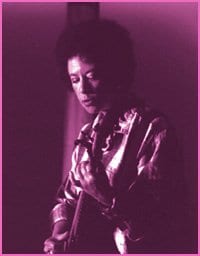Growing up in the Yukon, my choice in radio stations was limited. Limited to two, in fact: CBC North and our local station, CKRW. It was AM all the way, and my two favourite songs back then were Seasons in the Sun by Terry Jacks and At Seventeen by folksinger Janis Ian.
I guess I was a melodramatic little soul; I liked songs that told a story, preferably ones that could make me cry. Goodbye Michelle, it’s hard to die, when all the birds are singing in the sky-I would crank it up in the kitchen and let her rip.
Just hearing the chords to At Seventeen could get me all misty. The all-time best teenage-angst song ever written could make me sob into crossed arms a decade before my hormones even kicked in:
I learned the truth at 17-
That love was meant for beauty queens.
And high school girls with clear-skinned smiles
Who married young and then retired.
Of course, that was long before high school and homosexuality set in. Later those lyrics would mean even more to me.
Janis Ian is coming to the Vancouver Folk Music Festival this July. A quick perusal of her extensive website proved to me she was even more worthy of admiration as an eight-year-old than I had thought. Her first album, Society’s Child was released in 1966, when Janis was 15. It was the controversial story of a white girl in love with a young black man and it took her to the top of the charts and into the middle of a shitstorm. The record was banned; she was threatened, called ugly names, and found herself on the Tonight Show, in Life, Time and Newsweek.
Ian carried on, a fearless, melodic voice for social change. At Seventeen was a 1975 single from her eighth album, Between the Lines, and it sold more than a million copies, winning two of the unprecedented five Grammy awards it was nominated for. She went on to tour and record tirelessly, releasing an amazing 14 albums before taking a break from the music industry in 1983. Then she studied acting.
I reached her by telephone in Nashville, and asked her a couple of questions. She was extremely patient and graceful with me, considering she has been being interviewed for several years longer than I have been breathing, and I was uncharacteristically nervous and bumbling. I’m sure she heard paper rattling as my hands shook over the speakerphone. I asked her what made her return to recording and touring after a 10-year hiatus.
“I was writing songs that I didn’t think anybody else would sing. I really try to remain true to my work, and it seemed time to step away from my life as a non-performer and non-recording artist and go back to serving the songs.”
That allusion to other people singing her songs caught my attention. Turns out an impressive list of recording artists have covered Ian, including Chet Atkins, Joan Baez, Glen Campbell, Cher, Bette Midler, Roberta Flack, Nina Simone, Nana Mouskouri, and John Mellencamp, just to drop a few names.
Ian returned with a vengeance, releasing Breaking the Silence in 1993, which she funded with a second mortgage on her house. Oh, and she officially came out to the press as a lesbian. She had once been non-consensually outed in the Village Voice in 1975. “It was scary. I think anybody who makes a decision of that magnitude for you without you will scare you. It really takes it out of your hands and out of your control and turns it into a three-ring circus. So in that sense I didn’t appreciate it, I still don’t. But on the other hand, it didn’t destroy me, and it didn’t hurt me.”
I asked her if coming out had changed the demographic of her audience at all, or affected her fan base.
“Not at all that I could see,” Ian replied. “I wouldn’t even think of looking at it that way. It just would never concern me.”
She side-tripped to Canada in 2003 and married her partner of 14 years, criminal defence attorney Patricia Snyder. Then Ian released her 26th album, Billie’s Bones, earlier this year. It is a tribute to her favourite singer, Billie Holiday-and the album is a gift to Ian’s fans, she says.
“Usually when I go in to make an album, I think about what I want. But this was really geared to what I thought the fans would enjoy-something that was relatively under-produced, that was a little more folky than what I had been doing.”
My favourite tracks were “Marching on Glasgow” (Ian’s guitar instrumental) and “My Tennessee Hills,” her duet with Dolly Parton.
Parton is a fan. “I have always thought that Janis Ian was one of the greatest writers and singers in the whole wide world,” she’s been quoted as saying. “She sent me the song and I just absolutely loved it.”
I’ve never seen Janis Ian live; even she isn’t enough of a die-hard to tour up to the Yukon, but I’ll be at Jericho Beach in July. I’ll be the one in the back row, crying like an eight-year-old.
BLACK BOX.
Janis Ian.
Vancouver Folk Music Festival.
Jul 16-18.
Tix 604-602-9798.
www.thefestival.bc.ca.

 Why you can trust Xtra
Why you can trust Xtra


